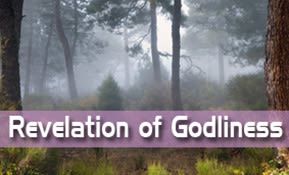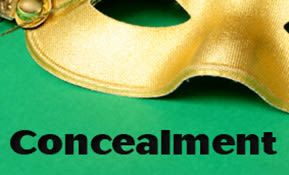
God Willing
The use of the phrase “God willing” seems weird to me. Folks say, “God willing, I’ll be picking up my dry cleaning.” Does Hashem really care about their dry cleaning?

The Seven Pillars of Faith, Part 1
There is a powerful little pamphlet available from The Breslov Research Institute called The Seven Pillars of Faith. It’s by the late Rabbi Yitzchok Breiter z”l who was an exceptional person and devoted follower of Rabbi Nachman. In his writings he explores a Breslov approach to understanding the importance and complexity of faith. As Rabbi Breiter asks, “…how should faith affect the way we actually lead our lives, make decisions, view events and experiences, and so on?” (page 3)
While Rabbi Breiter was most certainly writing The Seven Pillars of Faith for a Jewish audience, I have found that as a Bat Noach it is also crucial for me to  understand faith and what it really means to have faith, to flesh out the concept. I think we all need to be able to look at the events both small and large that happen to us in life and see God’s hand. We need to be able to look at anything and say, “I know God did that or allowed it to be.” And to let that realization bring us tranquility that allows us to help repair the world.
understand faith and what it really means to have faith, to flesh out the concept. I think we all need to be able to look at the events both small and large that happen to us in life and see God’s hand. We need to be able to look at anything and say, “I know God did that or allowed it to be.” And to let that realization bring us tranquility that allows us to help repair the world.
 understand faith and what it really means to have faith, to flesh out the concept. I think we all need to be able to look at the events both small and large that happen to us in life and see God’s hand. We need to be able to look at anything and say, “I know God did that or allowed it to be.” And to let that realization bring us tranquility that allows us to help repair the world.
understand faith and what it really means to have faith, to flesh out the concept. I think we all need to be able to look at the events both small and large that happen to us in life and see God’s hand. We need to be able to look at anything and say, “I know God did that or allowed it to be.” And to let that realization bring us tranquility that allows us to help repair the world. First Pillar: The Hand of God
“God willing…”
I remember when I first started really pursuing my interest in Judaism there were many cultural and religious differences that started to pop out at me. One of them was the use of the phrase “God willing”. It seemed a little odd to me. For example, if someone said, “God willing, I’ll be picking up my dry cleaning on Monday, and then I’ll meet you for lunch…” it seemed weird. It didn’t fit in with my understanding of God, not that I had much of one being raised agnostic. I thought that God did not waste His time on my Monday or your dry cleaning or our lunch plans, ever. It struck me as bizarre and arrogant even to think that He is involved in what seems like such trivial matters. God is busy with patients in ICUs, dictators, rapists, protecting kids chasing balls into the street, and Alzheimer’s patients about to wander off from the watchful eyes of their keepers– not my mundane existence.
The more I learned about the Breslev approach to Judaism, the way I really started to learn about Torah, the more I embraced a different understanding of the Creator and how He works in our lives. This approach was enormously liberating for me and seriously changed my life for the better in ways I never thought possible.
My understanding of God and how involved He is in our lives was totally wrong. Of course if God is omniscient and omnipotent He has the knowledge and the power to be everywhere at once, conducting the goings on of the world in ways too infinitesimal to conceive of. Therefore it is possible He is involved in my life and yours, even if we aren’t about to be hit by a bus or running a country.
But that leaves the question, does He want to be involved in the goings on of the mundane little life of a person like me? How do we know? One way to find out, for me, was to pray and to ask for help wherever I needed it. That felt odd and wrong at first, but I figured Rabbi Brody was not misleading me despite my fears. He just did not seem like the sort to do that. The truth is after I did this for awhile it really felt like I was engaging in a conversation with God; I did the talking with my voice and He responded with the world around me, sometimes in ways so clear it gave me goose bumps.
This showed me that perhaps, despite my doubts, He was there listening to me and wanted to be involved in my life, even when it seemed trivial to me. But does God want to hear from me when I fail, when I ashamed to open my mouth because of angry or selfish behavior I have engaged in? This is where we really get at what the first pillar of faith is all about. There most certainly is a God who is involved in every thing we are doing, Who wants to hear from us, and most importantly He wants to hear from us when we have fallen flat on our faces and really done something stupid or wrong.
Our stumbles will certainly leave us hurting in life, sometimes terribly so. But that is when we need to go to God and tell Him what He already knows about what we have done. He already knows it, but we need to say it. If we don’t know why we did it, whatever it is, we need to ask for help in understanding it. We need to ask for the strength to make it better. We need to ask for forgiveness and for help to get back on the right path. We need to beg God to help us have the strength to believe in ourselves again, to not slip into the trap of seeing ourselves or others as being composed solely of the mistakes we or they make.
There is an expression that comes from the ‘hood that I love: Let your haters be your motivators. The same could be said about the mistakes we make. Let us make our mistakes motivate, then we are descending for the sake of ascending. Just as we say “God willing” to remind ourselves and others that our plans don’t mean anything unless God is behind them, the mistakes we make – and that others make too- only happen because it was part of a larger plan that God put into play. And His plans involving us, like the plans of a loving Father, are always ultimately an opportunity for us to do better and to make the world better.
Next week, God willing, we will learn about the second pillar: revelation of Godliness.









10/27/2009
This article I have learned alot from this article. Let’s face it, I learn alot from every article you write…Keep up the good work and Thank You!
10/27/2009
I have learned alot from this article. Let’s face it, I learn alot from every article you write…Keep up the good work and Thank You!